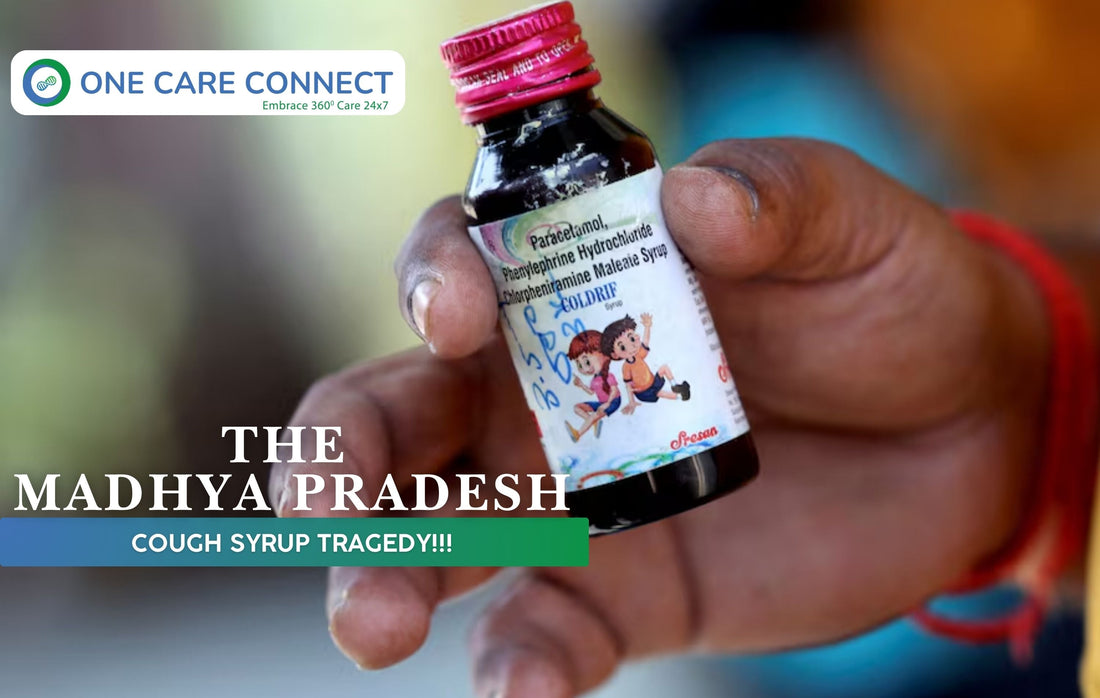In the second half of 2025, a major health crisis struck Madhya Pradesh when multiple children died after consuming a pediatric cough syrup. Reports say that in districts, Chhindwara and Betul, several children under the age of five developed acute kidney failure following administration of a syrup called Coldrif syrup, manufactured by Sresan Pharmaceuticals. The syrup was found to contain extremely high levels of a toxic industrial chemical, Diethylene Glycol (DEG), reportedly about 48.6% in one batch, which is above the acceptable range.
The state government quickly banned the sale of syrup and other products from the same manufacturer, initiated an investigation, and suspended drug regulators found negligent. The incident has raised alarm nationally, given that the very medicines intended to heal ended up causing irreparable harm. To decrease and inhibit these types of incidents, it is necessary to maintain good manufacturing practices.
Why Good Manufacturing Practices (GMP) are crucial:
The tragedy highlights why good manufacturing practices are non-negotiable in the pharmaceutical industry:
- GMPs ensure that raw materials, production processes, storage, packing and distribution are all controlled so the final product is safe, effective and of consistent quality.
- In the Madhya Pradesh case, the absence or breakdown of quality control, example, raw material containing DEG, inadequate testing, poor oversight meant that a toxic chemical entered a medicine meant for children.
- Patients and families rely on manufacturers and regulators to guarantee safety. When GMP standards are not followed, that trust is broken and lives can be lost.
- Even a single lapse, such as contaminated solvent, reused industrial ingredients, incorrect labelling or lack of batch testing can have catastrophic effects, especially in pediatric doses.
Things need to be checked:
As a consumer, you have certain steps you can follow to reduce the risk of receiving substandard or unsafe medication:
1. Look for regulatory certification & Licensing:
- Check that the product is registered with the relevant national drug authority (Central Drugs Standard Control Organization).
- Ensure the manufacturer is licensed and the batch number, manufacturing date, and expiry date are clearly printed.
2. Buy from trusted sources:
- Purchase medicines from registered pharmacies rather than informal vendors.
- Avoid medicines that arrive in damaged packaging, with missing labelling or unclear origin.
3. Choose brands known for their quality:
- Brands that invest in proper manufacturing, external labs, and clearly display dose instructions and safety warnings are safe bets.
- If you are buying pediatric syrups, double-check age-appropriate labelling and dosage information.
4. Be vigilant with pediatric formulations:
- Children’s medicines must follow stricter safety norms like having low impurities, accurate dosing, etc.
- Ask your paediatrician/pharmacist if the medicine has been cleared for children in their age group, and whether any safety alerts have been issued.
- Ask your paediatrician/pharmacist whether the use of medicine is considered safe for your children and their age.
5. Report any unusual side-effects & stay informed:
- If a child develops sudden kidney, liver or other organ issues after taking a medicine, seek medical help immediately and report the brand and batch.
- Stay updated on product recalls or alerts, such as the one issued in Madhya Pradesh concerning Coldrif.
Why this matters:
While the cough syrup tragedy in Madhya Pradesh is stark, it underscores several broader issues:
- Substandard medicines are a global challenge, and pediatric products are particularly vulnerable because children are more sensitive to contaminants.
- Even if a medicine is safe in most batches, a single compromised batch can cause severe harm.
- This pushes the importance of discipline in manufacturing, stringent regulatory oversight, transparent supply chains, and educated consumers.
- For parents, this means not taking medicine purchase lightly, like brand reputation, manufacturing practices and regulatory compliance matter as much as a doctor’s prescription.
The devastating death of children in Madhya Pradesh linked to a contaminated cough syrup serves as a painful reminder that medicine safety is not automatic; it requires coordination, accountability and vigilance. Good manufacturing practices are the cornerstone of safe drugs; without them, vulnerable populations bear the consequences.
As a consumer, you may not see the manufacturing floor, but you can make safer choices, purchase from trusted sources, check for certified brands, scrutinise labels, and keep yourself informed about recalls and safety alerts. When it comes to medicines, especially those for children, standardised, certified, and properly manufactured should be your guiding mantra.

